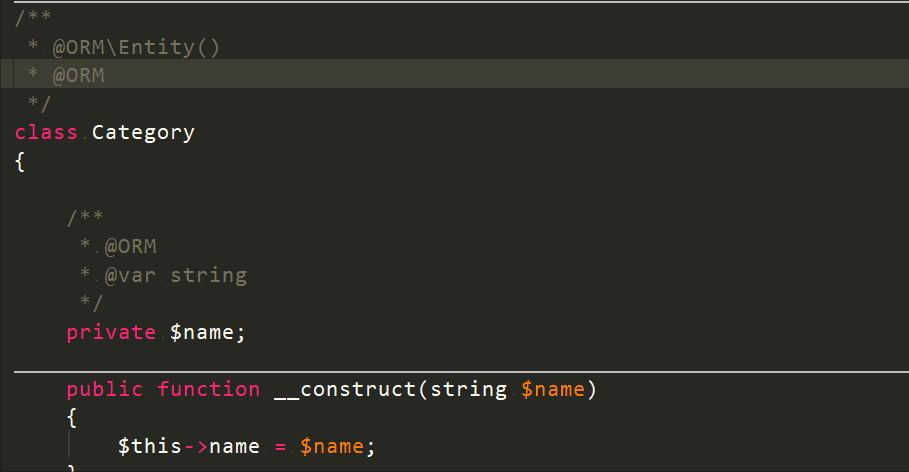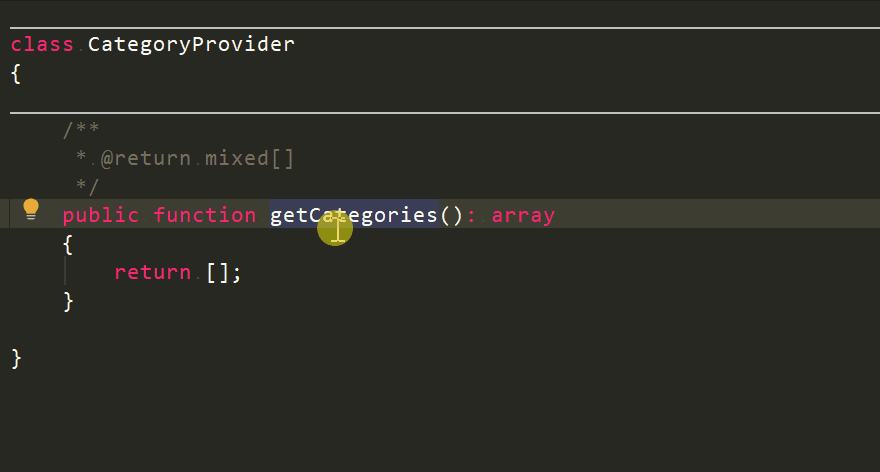I've been using PhpStorm for quite a while and I'm still surprised now and then when it suggests an auto-completion for something I thought that's not possible.
But there are still many things - usually framework- or library-specific - that PhpStorm cannot do on its own. But there are plugins that can step in place and do the magic for specific framework or library.
PHP Annotations
PHP Annotations plugin analyses the classes which can be used as annotations and provides code-completing when writing annotations - e.g. Doctrine ORM mappings.

PHP Toolbox
PHP Toolbox plugin was extracted from Symfony plugin and provides better auto-completion for several libraries (PHPUnit, Behat, Doctrine, Twig etc.)
Symfony Plugin
Both PHP Annotations and PHP Toolbox are best used together with the Symfony Plugin. This plugin provides auto-completion for anything in Symfony you can imagine. It analyses the DI container code, so it can suggest the services when you call $container->get(). It provides various auto-completions in the YAML config files. Apart from that, it can handle lots of Form, Twig and Routing auto-completions. You can click through from controller to template, from the name of the route to the controller where it is defined. It analyses translation files and provides the completion for the translations when calling the translate function or using trans filter in Twig.
How to use custom template directory with the Symfony plugin?
If you have templates in a custom namespace and directory - e.g. configured in config/packages/twig.yaml, the auto-completion in controllers or other templates won't work for those, because the Symfony plugin can't detect them.
twig:
paths:
'%kernel.project_dir%/src/App/templates': App
'%kernel.project_dir%/src/Admin/templates': Admin
You can fix it by manually adding them in PhpStorm Settings (PHP -> Symfony -> Twig/Template). But each of the developers must do it himself. Unless you put in into ide-twig.json in a project root:
{
"namespaces": [
{
"namespace": "App",
"path": "src/App/templates"
},
{
"namespace": "Admin",
"path": "src/Admin/templates"
}
]
}
This file is loaded by Symfony plugin and the namespaces and paths will be configured automatically (you can check it in the Settings).
Enable translation keys auto-completion for custom translation methods
When you create a custom method that accepts translation key, the PhpStorm won't do the auto-completion for it, because it does not know that the parameter is a translation key. Luckily, the Symfony plugin provides an easy way to let it know of the type of the parameter. Have a look at the following example:
<?php
class TitleManager
{
/**
* @param string $label #TranslationKey
*/
public function addItem(string $label): void
{
// ...
}
}
$titleManager = new TitleManager();
$titleManager->addItem('app.products.name'); // the translation key auto-completion will work here
You can see that I added #TranslationKey to the method parameter PHPDoc. It is something they call Hash Tags in Symfony plugin. It allows you to define the type of the parameter, so the plugin can provide the auto-completion. Apart from TranslationKey, you can also use Entity, Service, FormType, Template, Route, Class, TranslationDomain, FormOption or Interface (don't forget to prefix them with #).
PHPUnit Enhancement
PHPUnit Enhancement plugin provides smart autocomplete for mock creation. It also handles refactoring - if you rename a method which is mocked, it is correctly renamed in the string in tests.

PHP composer.json support
PHP composer.json support plugin adds composer.json auto-complete and validation. It also displays which version of each packages is installed (from the data in composer.lock)
Php Inspections (EA Extended)
Php Inspections (EA Extended) is a plugin that adds a lot of inspections for statically analyzing the PHP code you are writing and suggesting fixes and improvements.
Twig Support
Twig Support is an official plugin from Jetbrains bundled with PhpStorm, so just enable it in the settings and you are done.
.env files support
Symfony 4 uses .env files for configuration parameters (instead of parameters.yml) and .env files support plugin provides syntax highlighting for the .env file.
.ignore
.ignore plugin provides syntax highlighting and path auto-completion for .gitignore (and other ignore files). It also automatically changes the color of the ignored files in the Project File Tree to gray.
Conclusion
I can't imagine using PhpStorm for Symfony development without those plugins. They save me time and prevent mistakes by providing the magic auto-completion.
Do you use some other useful plugins? Please let me know in the comments.
Update: If you are interested in plugins not directly related to Symfony, have a look at the Essential PhpStorm plugins article by localheinz.